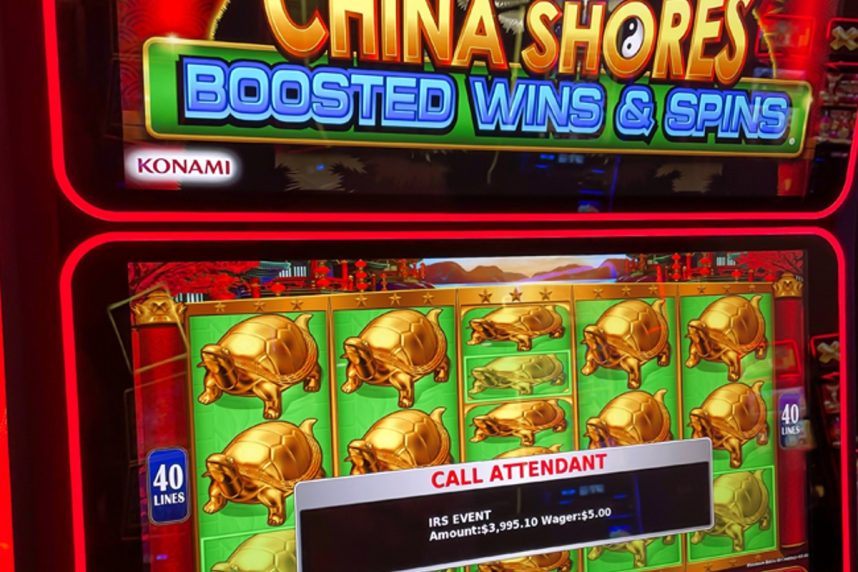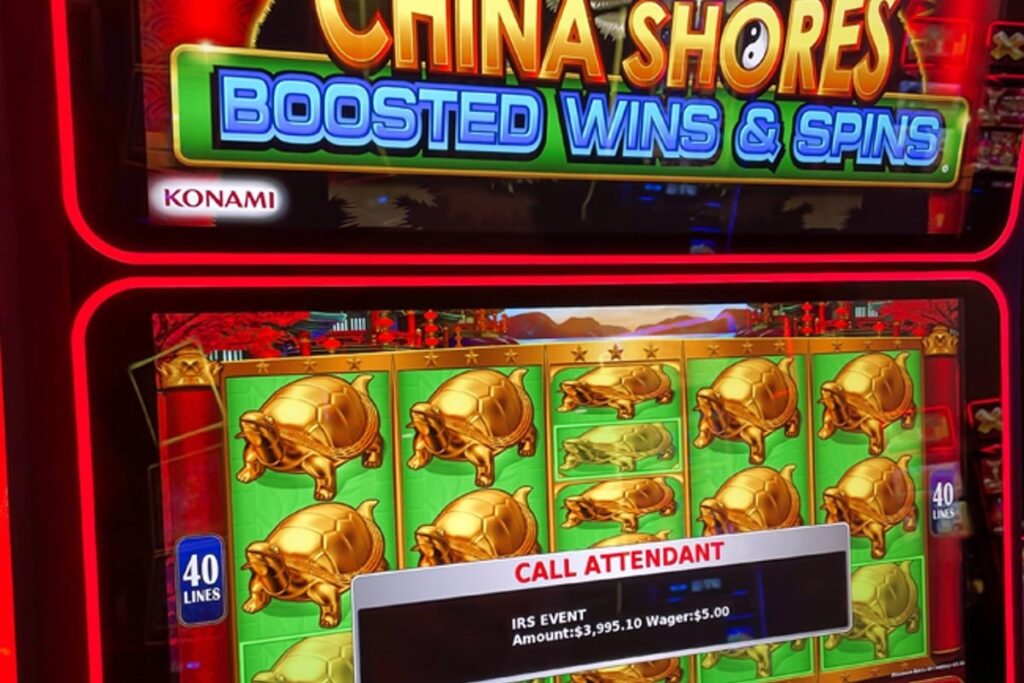Posted on: February 16, 2024, 08:54h.
Last updated on: February 16, 2024, 11:11h.
Efforts to increase the slot tax threshold of $1,200 have a new supporter in the Internal Revenue Service’s (IRS) Advisory Council.

Calls to increase how much a slot machine player can win on a single spin before a floor attendant must inspect the player’s identification and issue them a W-2G form to report their winnings as part of their federal income tax filing have persisted for years. The $1,200 jackpot threshold was implemented in 1977 when slot machines were limited to Nevada. Today, only a handful of states don’t have legal slot machines.
The IRS Advisory Council in November recommended that the U.S. agency responsible for collecting federal taxes increase the slot jackpot trigger to $5,800.
U.S. Reps. Dina Titus (D-Nevada) and Guy Reschenthaler (R-Pennsylvania) have led the congressional push for the jackpot adjustment.
We urge you to follow the IRSAC’s recommendation and exercise your authority to raise the threshold for slot machine jackpot winnings … and to consider periodic increases to the threshold based on inflation. Taking this action will align with the IRS initiative to strategically use data to improve tax administration and modernize tax reporting for our constituents,” the lawmakers wrote to IRS Commissioner Danny Werfel.
The IRS Advisory Council facilitates tax discussions between lawmakers, the public, and the federal agency. The Council regularly proposes enhancements and policy changes to the IRS.
No Law Needed
Supporters of raising the $1,200 slot tax threshold say the regulation is antiquated. The tax policy on slot jackpots hasn’t changed in 47 years. With inflation, the 1977 cap equates to about $6,326 today.
The IRS Advisory Council said in its letter to Werfel that the slot tax threshold should be elevated to $5,800. But further increases should be considered if inflation continues to rise.
Those who think the slot jackpot filing amount should be increased say the stoppage takes a slot machine offline, stalls a gambler’s play and fun, and creates a burden of paperwork for the casino. Staffing issues across the country have only lengthened the process for consumers, as they have faced lengthy delays in having a slot attendant arrive.
“The antiquated slot tax threshold creates unnecessary burdens for consumers, casino operators, and the IRS,” said American Gaming Association President and CEO Bill Miller.
Since 2022, Titus and Reschenthaler have pushed federal legislation called the Shifting Limits on Thresholds (SLOT) Act. The SLOT Act recommended increasing the slot jackpot threshold to $5,000. The bill to modernize the slot tax code never cleared a House committee.
With the IRS Advisory Council recommending a similar change, Titus and Reschenthaler’s SLOT Act might not be needed if the tax agency decides to implement the adjustment.
Slot Revenue
The AGA hasn’t yet released its full-year 2024 revenue report for commercial casinos. January through September, slot machines generated gross gaming revenue of $26.7 billion.
Slot win was up almost 4% through three quarters on the record-setting 2022 campaign, when the machines won $34.4 billion. The revenue is from the 33 states where commercial slot machines operate. The numbers do not include slot income earned at tribal casinos.




